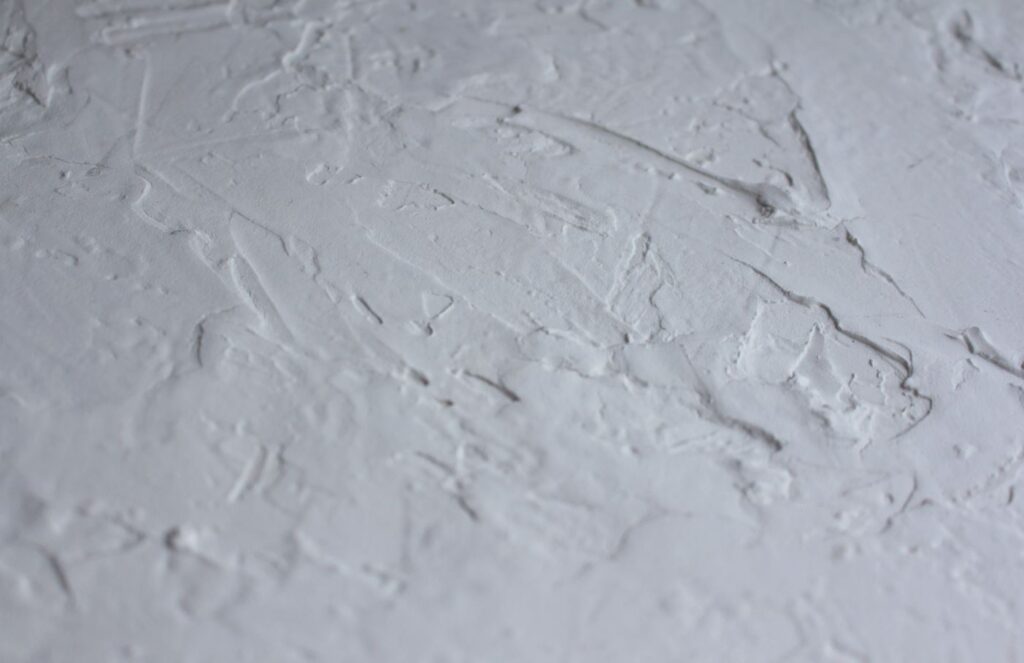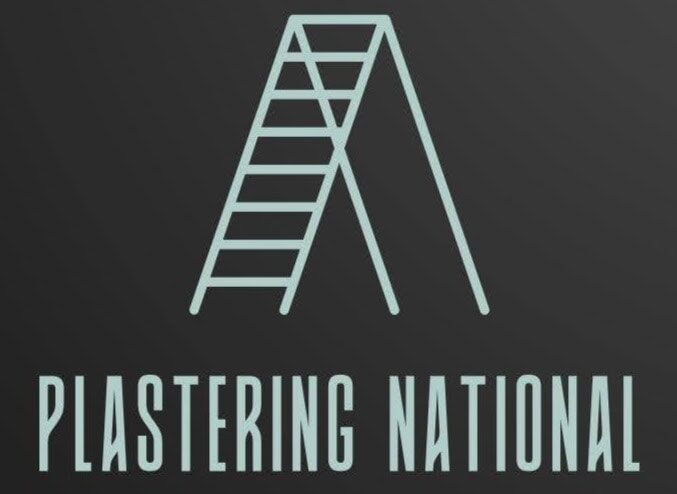When you enter a wonderfully designed store, do you ever think about the artistry that went into its layout? Competent commercial store fitters are the ones that usually pull it off, turning ordinary areas into magical ones that clients can’t get enough of. It is essential to select the correct shopfitters whether you are starting a new business or considering renovating. How do you ensure their knowledge and your vision are in sync when making this important decision?
When it comes to commercial shop fitting, accuracy is key. The best people to hire are those who have experience making places that look good and work well. To meet your company’s specific needs, you should hire a staff that has worked in your industry before. With the help of skilled shopfitters, your brand may be elevated in ways you never thought possible, thanks to personalised displays and efficient traffic flow.
Envision a world where the moment you step foot in your company’s physical location, you’ll feel connected to your brand. In our deep exploration, we will explore the important factors to consider while locating the ideal commercial shop fitters. Acquire the skills to conduct thorough portfolio evaluations, comprehend cost structures, and guarantee that deadlines coincide with organisational objectives. Instead of letting yourself be paralysed by the process, learn what you need to know to make smart choices and transform your business space into an enticing attraction.
Are you ready to start this life-changing journey? Let’s find out how to choose the best commercial shop fitters for your business and take your brand to a new level.
What Is Shopfitting?
It’s crucial first to have a solid grasp of what shopfitting entails. The process of outfitting a retail store’s interior with fixtures, fittings, and equipment is known as shopfitting. But the trade also applies to other sectors of the economy, such as hospitals, hypermarkets, and other businesses that need fixtures and fittings. Shop fits are varied for different businesses. For instance, to draw in their intended clientele, fashion boutiques need to have chic, contemporary designs, yet hardware stores might emphasise an industrial-looking design more than aesthetics.
First, the site is surveyed, and the available room on the premises is measured. For a design that fits your brand’s general theme, the shopfitter will work closely with interior designers and companies that make custom furniture. Shopfitters generally provide fixtures and equipment, but you can choose the fittings you want. The shopfitting industry has been very helpful for companies creating their brand identity through their stores.
Assessing the Needs of Your Business
Determine Your Business Type
To create solutions that meet your goals, you must understand your business. Consider these steps:
Purpose and Objectives
Make sure the goals and objectives of your company are crystal clear. This lays the groundwork for comprehending your values and objectives for the distant future.
Services or Products
List the precise goods and services you provide. This aids in choosing the kind of store fitting that will improve the accessibility and display of your products.
Target Audience
Get to know your intended readers. The layout and appearance of your store might be affected by the different tastes of different groups.
Personality and Identity of the Brand
Create a description of your brand. The design aspects, colour palettes, and general aesthetics of your store fitting must represent and support your brand.
Analysis of the Competition
Look at your rivals in the same field. Find the things that work well in their shop fittings and consider how to make your business stand out while still meeting customer needs.
Resolving Individual Shop Fitting Requirements
Pay close attention to the particular needs of shop fitting once you have a firm grasp of your company:
- Space Utilization: Think about how big and how organised your store is. Figure out how to make the most of the available area to boost product exposure and the consumer experience.
- Functional Requirements: Find out what you need regarding storage, display shelves, product placement, and checkout stations. Think about how customers will move through the store and ensure the layout makes shopping easy and enjoyable for everyone.
- Branding Elements: Make sure the shop fitting incorporates branding components like logos, signs, and visual aspects that tell your brand’s story.

What to Look For When Choosing a Shop Fitter?
The quality and style of the work done by different shopfitters may differ. The most successful shopfitters are usually the ones who have been in the business for a long time. Things to watch out for are listed below.
Select A Shopfitter With A Strong Portfolio
You should hire a shopfitter who has a history of doing good work. Learning a lot about a business is possible by looking at its collection. Their work can even give you ideas for your designs. A good shopfitter will have a lot of examples of their work, and they might even let you see the stores they’ve set up.
Make Them Talkable
When you’re setting up your store, communication is king. When planning your store’s interior design, you and your shopfitter must have a shared vision. Changes that are costly to implement in the future are likely to occur in the event that there is a failure to communicate. To get outcomes that are up to your standards, it’s important to figure out what you want and then communicate that to your shopfitter.
They Should Explain The Whole Fit Out Process
Although your commercial acumen is a plus, it may sometimes mesh with the concepts required for an optimal retail shop layout. For this reason, the shopfitter must walk you through each step of the fit-out process so that you can envision the finished product. Feel free to enquire about your shopfitter’s design decisions at any point along the process, from first sketches to final touches. The goal of every light, fixture, and fitting should be to enhance the shopping experience for your customers.
Avoid Using Inexpensive Fit-Out Services
It may be alluring to choose inexpensive fit-out services; however, you must remember why they are inexpensive to begin with. The materials and craftsmanship utilised will likely be of inferior quality, potentially affecting the ambience and mood of your retail establishment. Even if the initial fit appears to be satisfactory, its durability cannot be guaranteed. To obtain fit-out services of superior quality, seek out a shopfitter who possesses the necessary accreditations. Notify them whether their work has received industry approval, and feel free to solicit client feedback. A low-cost shopfitting company should be avoided at all costs, as it will only result in expensive renovations and repairs in the long run.
FAQs About Commercial Shop Fitters
How Do I Identify The Right Commercial Shop Fitters For My Business?
To identify the right commercial shop fitters for your business, start by assessing their experience in similar projects. Look for portfolios showcasing their previous work, especially in your industry. Additionally, check for client reviews and testimonials to gauge satisfaction levels.
What Factors Should I Consider When Selecting Commercial Shop Fitters?
Consider factors such as expertise, budget compatibility, and timelines. Ensure that the shop fitters have the necessary licenses and certifications. Communication is key, so opt for professionals who are responsive and collaborative. Ultimately, choose a team that aligns with your vision and business requirements.
How Can I Determine The Cost Of Hiring Commercial Shop Fitters?
Determining the cost involves obtaining detailed quotes from potential shop fitters. Ensure that the quotes include all aspects of the project, from materials to labor and any additional charges. It’s advisable to get quotes from multiple providers to compare and make an informed decision that fits your budget.
What Role Does Design Play In The Selection Of Commercial Shop Fitters?
Design is a crucial aspect when selecting commercial shop fitters. Look for professionals who not only have construction skills but also a strong sense of design aesthetics. A well-designed retail space can significantly impact customer experience and contribute to the overall success of your business.
How Long Does It Typically Take To Complete A Commercial Shop Fitting Project?
The duration of a commercial shop fitting project can vary based on the size and complexity of the job. A smaller project might take a few weeks, while larger and more intricate designs could extend the timeline. It’s essential to discuss project timelines with potential shop fitters and establish a realistic schedule that meets your business needs.
Typical Shopfitters Responsibilities
A shopfitter’s day-to-day tasks might be quite different because they are responsible for every facet of a store’s outfitting. A shopfitter’s job scope can be influenced by factors such as the store’s dimensions, the intricacy of the necessary tasks, and the available funds. Their typical day consists of:
Site Visits
Depending on your client’s brief, you may need to visit places to evaluate the available space, identify the needs, and check the existing condition of the area.
Planning And Design
Craftspeople specialising in shopfitting can draw preliminary blueprints, schematics, and detailed designs.
Installation
Set up fixtures, equipment, and signage accurately and securely.
Procurement Of Supplies
Shopfitters locate the supplies and machinery required for the undertaking. Travelling to specialist shops and comparing costs could be part of this.
Communication
Maintaining communication with clients, contractors, and other team members is essential to ensuring the project moves smoothly and to everyone’s satisfaction.
Quality Control
Subsequently, you ensure that the work satisfies quality standards and adheres to safety laws, possibly with the help of an independent safety inspector.
Execution
Painting and varnishing are some finishing touches that shopfitters apply to a room to make it look better and last longer.
Maintenance
According to the terms of your deal, you may have to do regular maintenance on fixtures and equipment after they are installed to make sure they keep working right.
Record Keeping
For your records and your client’s records, you enter information about all costs, project updates, and events.
Project Management
Shopfitters are in charge of setting up a store and are always checking in with the right people to see how things are going concerning the original budget, schedule, and design.
Things You Should Ask A Shop Fitter Before You Hire Them
When undertaking a shop renovation, it is critical to employ the services of a shop fitter. In addition to assisting with the renovation’s design and planning, they will be responsible for its execution. However, there are a few enquiries that you should make before hiring one. This blog post will discuss the most crucial questions you should ask before hiring a shop fitter.
When Did You First Open For Business?
A good rule of thumb is to find out how long a firm has been operating before hiring them. From this, you may gauge their level of expertise and competence and their likelihood of completing the job to your expectations.
Shopfitters with years of experience in the field will be well-equipped to handle any issues that crop up throughout the refurbishment process. Conversely, a newer company may need more expertise.
Could You Provide Me With Some Samples Of Your Work?
A trustworthy shop fitter should be happy to show you examples of the work they’ve done in the past. Because of this, you can tell how good their work is and if they would be a good fit for your project. When you look at examples, pay attention to how much detail there is and how the work is finished. Are all of the hardware and fittings firmly in place? Are the edges clean and smooth? Does the work meet your standards? You should find a different shop worker if you need more clarification on this one. You can settle for the best because many choices are available.
How Do I Get In Touch With Former Customers?
If you hire a reliable shop fitter, they should have no issue providing you with names and numbers of satisfied customers. You can contact them through this method to enquire about the time they spent working for the organisation. You may learn a lot about the client’s experience with the service, the work quality, and the likelihood that they will suggest your business to others by asking them directly.
Additionally, this is a great chance to enquire about any particular issues or worries the client may have had throughout the process. After you have collected this data, you will be better equipped to determine whether a specific shop fitter is suitable for your company.
What Does Your Quote Cover?
Verify that you fully comprehend the scope of work when you obtain a shop fitter’s quote. A modest initial price can be only the beginning as some businesses start to tack on hidden fees for materials, labour, and more. Before you make a final decision, be sure you fully grasp what the quote covers. By doing this, we can lessen the likelihood of unpleasant surprises in the future.
The shipfitter’s quote may be excessively high, but you shouldn’t be scared to haggle with them over it. Make sure you enquire about any warranty or guarantee they may provide. You can rest assured that the work will be done to a high standard and that you will be covered in any problems because of this.
Conclusion
You can’t say enough about how important it is for your business to find the right industrial shop fitters. They are necessary to turn everyday rooms into magical ones that people can’t get enough of. When it comes to business shop fitting, accuracy is very important, and it’s very important to hire people who have experience making places look good and work well. With personalised displays and good traffic flow, skilled shopfitters can raise your brand in ways you never thought possible.
To find the best commercial shop fitters, you should look at the type of business you have, what you want to achieve, who you want to sell your goods or services to, how you want to be known, what your brand stands for, what your competitors are doing, and your specific shop fitting needs. Carefully consider how space is used, what functions are needed, and how the business is represented.
Look for a shop fitter with a good portfolio who is easy to talk to and can walk you through the whole process. This will help you picture the end product and make sure that every light, fixture, and fitting is meant to make your customers’ shopping experience better.
Hiring the right industrial shop fitters is important if you want to improve the look and functionality of your business. You can make smart decisions and turn your business space into an appealing attraction by knowing what kind of business you have, what your goals are, who your rivals are, and making sure that your shop fitting meets your needs.
If you want to keep the atmosphere and mood of your store positive, don’t use cheap fit-out services. They might not be of high quality. You should instead look for a shopfitter who has been approved by the industry. Shopfitters are in charge of everything that goes into setting up a store. This includes going to the store, planning and designing, installing, buying materials, communicating, quality control, execution, maintenance, keeping records, and managing the project.
When choosing a shop fitter, make sure to ask about their experience, show you examples of their past work, and give you the contact information of happy customers. Find examples of work that shows attention to detail and quality, and make sure it meets your standards. If you need more help, you might want to talk to a different shop worker.
Shopfitters who have done good work in the past should be able to give you the names and phone numbers of happy customers so you can find out about their experience and the quality of their work. You should find out if they offer any promises or guarantees. This will help you decide if the work will be done well and keep you safe from problems.
It is very important to make sure that the shop fitter you hire has all the right licences and approvals from the industry. You should also know exactly what they are supposed to do before you hire them. In the long run, this will save you money on repairs and renovations, and it will also make sure that the store makeover goes smoothly.
Content Summary
- Competent commercial shop fitters transform ordinary spaces into attractive ones for customers.
- Selecting the right shopfitters is crucial for new or renovating businesses.
- Accuracy in commercial shop fitting is key to creating appealing and functional spaces.
- Hire a team with industry-specific experience for tailored shop fitting solutions.
- Skilled shopfitters can elevate a brand with personalised displays and efficient layouts.
- The right shopfitting creates a brand-connected experience for customers in physical locations.
- Learn to evaluate portfolios, understand cost structures, and align deadlines with business goals.
- Shopfitting involves outfitting retail interiors with fixtures, fittings, and equipment.
- Shopfitting applies to various sectors, each requiring different designs and fixtures.
- Shopfitters collaborates with designers and custom furniture makers for brand-aligned designs.
- Shopfitters provide fixtures and equipment, allowing for personalised fitting choices.
- The shopfitting industry aids businesses in creating a distinct brand identity.
- Understand your business type to create effective shop-fitting solutions.
- Clearly define business goals and objectives for future-focused shop fitting plans.
- List specific products and services to choose suitable store fitting enhancements.
- Consider target audience preferences in store layout and design.
- Develop a brand description to guide store fitting design and aesthetics.
- Analyse competitors to identify effective shop fitting elements and differentiate your business.
- Consider space utilisation for maximum product exposure and customer experience.
- Address functional needs like storage, display, customer flow, and checkout areas.
- Incorporate branding elements in shop fittings to reinforce the brand story.
- Choose a shopfitter with a strong, relevant portfolio to ensure quality work.
- Effective communication with shopfitters is crucial to align visions and avoid costly changes.
- Shopfitters should guide clients through the fit-out process to visualise the end result.
- Avoid cheap fit-out services due to potential low quality and durability issues.
- Shopfitters’ responsibilities include site visits, planning, installation, and quality control.
- Shopfitters source supplies, manage communication and ensure project adherence to standards.
- Ask potential shopfitters about their business history to gauge experience and reliability.
- Request work samples from shopfitters to assess quality and suitability for your project.
- Contact former clients of shopfitters for direct feedback on service and work quality.
- Clarify what is included in a shopfitter’s quote to avoid unexpected costs.
- Negotiate and understand any warranties or guarantees offered by the shopfitter.
- Choose shopfitters who have a track record of delivering high-quality work.
- Ensure shopfitter portfolios reflect the style and quality suitable for your brand.
- Shopfitters should provide clear communication throughout the project.
- Seek shopfitters who explain each step of the fit-out process for clarity.
- High-quality materials and craftsmanship are vital for a lasting and appealing fit-out.
- Regular maintenance by shopfitters ensures long-term functionality of installations.
- Record keeping by shopfitters helps in tracking costs and project progress.
- Shopfitters manage projects to align with budget, schedule, and design objectives.
- Experienced shopfitters handle unexpected challenges during renovations effectively.
- Detailed finishing and quality of past work indicate a shopfitter’s expertise.
- Direct client feedback provides insights into a shopfitter’s reliability and service quality.
- Detailed quotes from shopfitters help in financial planning and avoiding surprises.
- Assessing shopfitters’ warranties guarantees quality and problem resolution.
- Strong portfolios indicate a shopfitter’s ability to meet specific business needs.
- Clear, continuous dialogue with shopfitters ensures mutual understanding and satisfaction.
- Understanding the entire shopfitting process helps in making informed decisions.
- Ensuring the use of quality materials and craftsmanship avoids future issues.
- Shopfitters’ project management skills are crucial for timely and budget-compliant completion.


